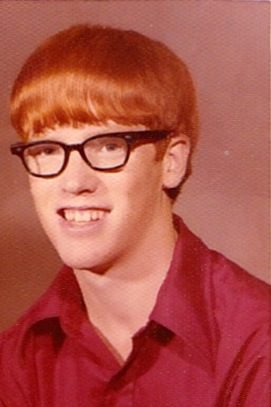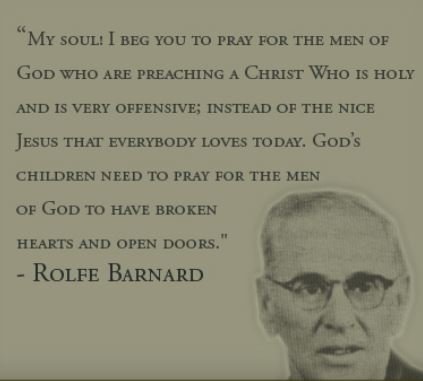
I put out the call to readers, asking them for questions they would like me to answer. If you have a question, please leave it here or email me. All questions will be answered in the order in which they are received.
Troy asked:
#1 Do you think your parents passing away at a young age made it easier to announce your atheism and on the other side of thing Polly’s parents were both alive until recently do you think this made her less vocal about it? (And I know writing that letter announcing your departure from religion was not easy, but pleasing parents is something that is qualitatively different)
#2 You often speak of your ill health, while I hesitate to ask it because I love you as a friend, do you want to blog to continue after you die or would you like it to die with you?
I don’t think the physical state — alive or dead — of our parents played much of a part in how Polly and I announced our loss of faith in 2008. If anything, our personalities determined our response. A story from our days at Midwestern Baptist College in Pontiac, Michigan, might best explain this. Not long after I expressed my romantic interest in Polly, we walked to an elevated drainage cover situated in the field outside of the dormitory. Sitting down, exactly six inches apart, (Please see Thou Shalt Not Touch: The Six-Inch Rule.) we “talked.” Well, I should say I talked. Polly quickly learned that her new love interest loved to talk, and talk, and talk, and . . . I learned that the beautiful dark-haired girl who would become my wife two years later was bashful, rarely saying a word. I thought, “does this girl EVER talk”? 🙂 Our personalities are very different. While I have won Polly over to my talkative side — at least when she’s around me — she’s still shy around people she doesn’t know. She’s content to let me be the talker in the family, even when I wish she would speak up. After forty-three years of marriage, we accept that we are who we are, comfortable in our own skins. Dammit, Polly, will you PLEASE tell your mother ____________? 🙂
This aforementioned story best explains how each of us announced our defections from Christianity. I wrote Dear Family, Friends, and Former Parishioners and started a blog. Polly? She said nothing, not then and not now. I suspect that people at her place of employment still think Polly is an Evangelical pastor’s wife. The people who work for her know that she is not a Christian, but outside of them, she has not shared her story with anyone. And she’s fine with that. And so am I.
Polly’s Fundamentalist Baptist parents (Dad died in 2020) know we left Christianity. They know we are agnostic atheists. However, we have NEVER had one conversation with them about our loss of faith. And we likely never will. That’s been the MO of our relationship with Polly’s parents from day one (which I will cover one day in a post).
Now to Troy’s second question. Troy is a good friend of mine. While we have never met face to face, we have become close over the years through this blog and Facebook. So I accept his question as coming from a heart of love and concern. If “Dr.” David Tee asked me this question, I would hear, “Hey godless motherfucker. What going to happen to your blog after God strikes you dead and you end up in Hell?”
Troy knows that I am in poor health. Tee does too, but he’s a heartless prick, so fuck him. 🙂 Troy knows my days are numbered, as do I. I hope to live for five or ten more years, but my body tells me that the hourglass of my life is running out. Knowing this, I have had thoughts about the future of this blog. Do I want it to live on after my death? Will Polly be able to maintain this site after my demise? One of my children? I don’t know.
I know I don’t want Polly to be saddled with the costs of maintaining this site — roughly $125 a month. I know that once I am gone, readership numbers will drop, as will donations. That’s just the facts of the matter. We live in a “what have you done for me lately” world. When Bruce Almighty is turned into ashes, I hope people will mourn my loss. However, I know that readers will move on. No new content, no reason to come to The Life and Times of Bruce Gerencser blog.
My thoughts are this: I need to leave behind detailed instructions on how to move this to a cheaper (and slower) web hosting service. Or, if given time before I die, I will do this myself. This would reduce costs to less than $20 a month, leaving Polly to decide later if she wants to delete this site. Die! Die! My Darling! (Polly will understand this movie reference.)
I’m not sure how I feel about being memorialized after I kick the bucket. That said, I know my writing may help others after I go over the rainbow in the sky (I’m running out of synonyms for D-E-A-D). It will be left to Polly and my family to decide the future of my “ministry.” Maybe it would be nice if this blog outlived me for the sake of my grandchildren. DO IT FOR THE CHILDREN, BRUCE! 🙂 I want them to “know” my story, to read and understand my life. (Most of them were born after I left the ministry. They have no idea that Grandpa was once a Baptist preacher.) Of course, if I finished my damn book, I could autograph copies for my thirteen reasons to get up in the morning. Okay, nineteen reasons — though I can hardly even get off the couch these days when my six oh-so-awesome kids come to visit me to see how soon they will be collecting their inheritance. 🙂
Bruce Gerencser, 68, lives in rural Northwest Ohio with his wife of 47 years. He and his wife have six grown children and sixteen grandchildren. Bruce pastored Evangelical churches for twenty-five years in Ohio, Texas, and Michigan. Bruce left the ministry in 2005, and in 2008 he left Christianity. Bruce is now a humanist and an atheist.
Your comments are welcome and appreciated. All first-time comments are moderated. Please read the commenting rules before commenting.
You can email Bruce via the Contact Form.


